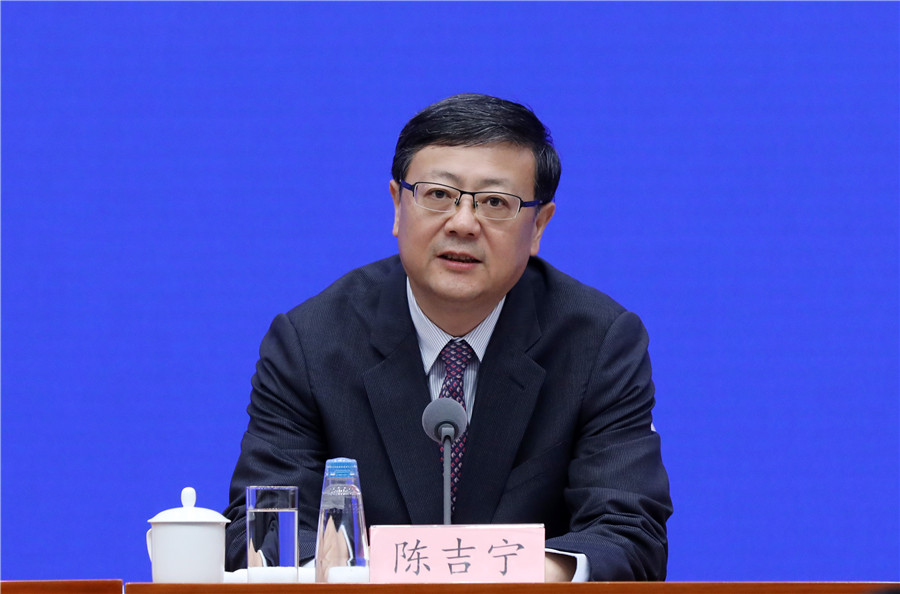Beijing's global influence grows amid its world-class aspirations


Capital has drawn international events, high passenger traffic, Fortune 500 firms
Beijing is experiencing growing international influence as the city accelerates efforts to become a world-class metropolis that is harmonious and livable, senior officials said on Thursday.
Chen Jining, mayor of Beijing, said at a news conference held by the State Council Information Office that the city has witnessed tremendous historical changes over the past 70 years.
"With the improved functions of the 'four centers', the city has taken on a brand-new look," he said.
In 2014, President Xi Jinping gave clear guidance on "what kind of capital we are building and how to build it" by propping up the "four centers" as Beijing's major functions-namely the national political, cultural, international communication and scientific innovation centers.
In past years, Beijing has significantly improved its capability in delivering quality service for major national affairs and events. The city has also raised its cultural service level by increasing the number of libraries, museums, shows and exhibitions.
Based on its rich technological resources and huge talent pool, Beijing has boosted innovation capabilities by putting 6.17 percent of its GDP into scientific research. The city has contributed to more than half of all China's major world-leading technological breakthroughs, Chen said.
More importantly, Beijing has gained more international influence through its efforts.
"The city is now more comprehensively open to the world," Chen said.
In the past few years, Beijing has successfully held many international events such as the 22nd APEC Economic Leaders' Meeting, the Belt and Road Forum for International Cooperation and the Beijing Summit of the Forum on China-Africa Cooperation, which have exhibited China's confidence to the world.
The Beijing Daxing International Airport, which will begin service by the end of this month, will help Beijing enter the "dual-pivot" air transport era.
The Beijing Capital International Airport has ranked second in the world for years in terms of passenger traffic, with annual visits exceeding 100 million.
In the business sector, 56 Fortune 500 companies are headquartered in Beijing, according to the municipal authority.
Beijing is also home to 30,000 foreign institutions and the headquarters of major international organizations such as the Asia Infrastructure Investment Bank.
The capital has been working on improving its business climate for both foreign and domestic companies. According to the World Bank, Beijing has made a significant contribution to China's advancement in the global ranking for the ease of doing business in its Doing Business Report in 2018.
"At present, we humans are facing some crucial challenges that require the world's scientists to work in cooperation," Chen said. "Beijing welcomes scientists from all over the world to settle down in the city to do their research."
Lin Keqing, executive deputy mayor of the capital, said Beijing is about to become the first city to have hosted both the summer and winter Olympic Games as of 2022, and the city will strengthen communication and cooperation with other international cities in many sectors through the opportunities brought by the Games.
"The Games will be green and open," he said.
- Survivor of Japan's 'comfort women' system dies
- 19 foreigners among China's first officially certified hotpot chefs
- China approves new lunar sample research applications from institutions
- Fishing, Hunting festival opens at Chagan Lake in Jilin
- A glimpse of Xi's global insights through maxims quoted in 2024
- China's 'Ice City' cracks down on ticket scalping in winter tourism




































